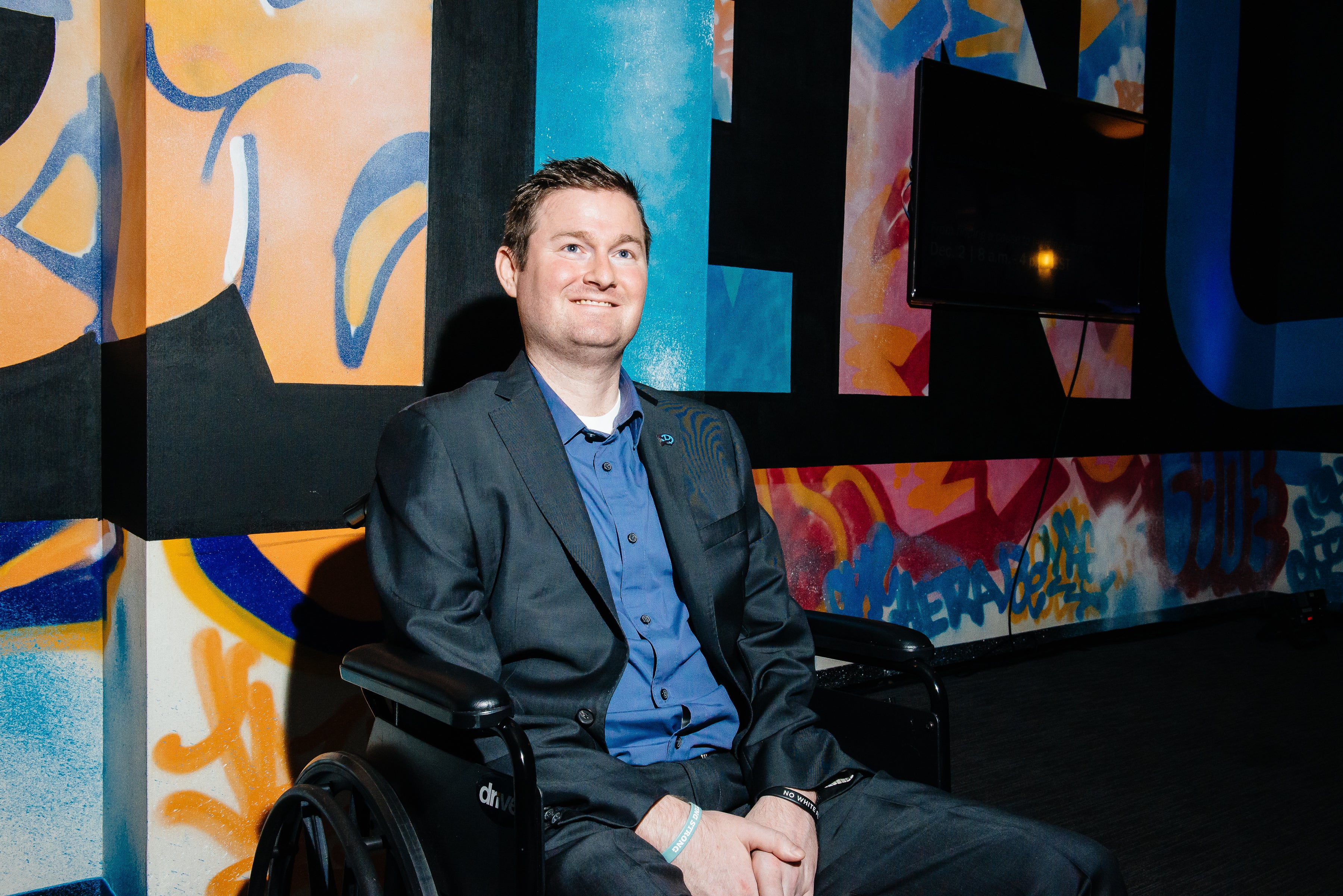Pat Quinn: Activist whose Ice Bucket Challenge raised millions for the fight against ALS
Over the course of a month in 2014, the viral phenomenon led to $100m in donations to charity

Your support helps us to tell the story
From reproductive rights to climate change to Big Tech, The Independent is on the ground when the story is developing. Whether it's investigating the financials of Elon Musk's pro-Trump PAC or producing our latest documentary, 'The A Word', which shines a light on the American women fighting for reproductive rights, we know how important it is to parse out the facts from the messaging.
At such a critical moment in US history, we need reporters on the ground. Your donation allows us to keep sending journalists to speak to both sides of the story.
The Independent is trusted by Americans across the entire political spectrum. And unlike many other quality news outlets, we choose not to lock Americans out of our reporting and analysis with paywalls. We believe quality journalism should be available to everyone, paid for by those who can afford it.
Your support makes all the difference.Pat Quinn, who has died aged 37, was an activist and fundraiser who popularised the ALS Ice Bucket Challenge. In what has become known as the “biggest social media phenomenon in history”, during six years he and fellow ice bucket challengers raised more than $220m for the cause worldwide.
In March 2013, then aged 30, Quinn was diagnosed with amyotrophic lateral sclerosis (ALS), also known as motor neurone disease. The neurological condition affects nerve cells in the brain and spinal cord. A year after his diagnosis, Quinn learnt about the Ice Bucket Challenge (IBC) on the social media feed of the pro golfer Chris Kennedy, who had recorded himself on 14 July taking the challenge.
After Quinn started encouraging his friends to take the challenge on social media, Pete Frates, who had also been diagnosed with ALS, soon began promoting the cause. A former baseball star at Boston College, Frates had many connections in the sports world.
Frates went on to become Quinn’s mentor. As Frates’ biographers note, “in Pat he saw many of the same characteristics of himself: determination, grit, drive and passion ... they were both much younger than the average ALS patient”.
The terms of the IBC are quite harmless and very simple: the challenger asks the challengee to douse himself/herself over the head with iced water from a bucket and then pass on the challenge to one other person.
Anyone failing to complete the challenge within a day has to make a donation to charity. Through short videos of people’s challenge performances posted on social media, the campaign went viral across the internet, attracting many thousands worldwide to take part.
By the end of August, just over a month later, the campaign had already raised $100m for the ALS Association. Over the course of the past six years the IBC has raised $115m for the ALS Association in the US and more than $220m worldwide for ALS research.
Many celebrities have taken part, including George W Bush, Leonardo DiCaprio and Oprah Winfrey. The association says that the additional funding had “dramatically accelerated the fight against ALS, leading to new research discoveries, expanded care for people living with ALS, and significant investment from the [US] government in ALS research”.
Quinn was an advocate of “voice banking”, a technological solution that allows a person to regain their voice when ALS, or another condition, takes it away. By recording key phrases, it is then possible at a later date to use a synthesised voice to communicate.
Quinn himself had not banked his own voice but was able to have his speech restored synthetically from clips of the many interviews that he had given about the Ice Bucket Challenge. He said: “One of the hardest things about ALS is losing the ability to speak. I don’t want to sound like a computer, I want to sound like me.”
The technology, known as Project Revoice, is now helping many others whose conditions have caused them to lose their vocal ability.
Last year, on the fifth anniversary of the IBC, Quinn spoke in Boston, saying: “Time is a funny thing. Everything can change in an instant, or nothing can change for decades. You never know what life will yield. It’s important to take every moment and live in a way that moves you, moves others. Make your time here purposeful and authentic ... Nobody knew the Ice Bucket Challenge would become a worldwide phenomenon, but we united as one because that is what it takes to change a disease like ALS.”
Pete Frates, Quinn’s friend and fellow fundraiser, died a few months later, aged 34.
Patrick Quinn was born in 1983 in Yonkers, New York, and attended Iona College, where he majored in criminal justice and was a keen rugby player. He had married Jennifer Flynn in 2014 but they later divorced.
The ALS Association said in tribute: “Pat fought ALS with positivity and bravery and inspired all around him. Those of us who knew him are devastated but grateful for all he did to advance the fight against ALS.”
Pat Quinn, activist and fundraiser, born 10 February 1983, died 22 November 2020



Join our commenting forum
Join thought-provoking conversations, follow other Independent readers and see their replies
0Comments